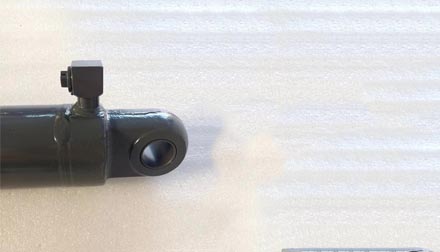Dec . 24, 2024 10:52 Back to list
Hydraulic Cylinder Solutions for Excavators Enhancing Performance and Efficiency
Hydraulic Cylinders for Excavators An Essential Component for Performance and Efficiency
Hydraulic systems play a crucial role in the operation of excavators, enabling them to perform a wide variety of tasks with remarkable precision and force. At the heart of these hydraulic systems are hydraulic cylinders, which are integral in converting hydraulic pressure into mechanical force. This article delves into the significance of hydraulic cylinders for excavators, exploring their functionality, types, and maintenance tips to optimize performance.
Understanding Hydraulic Cylinders
A hydraulic cylinder is a mechanical actuator that utilizes hydraulic fluid to produce linear motion and force. It consists of a cylindrical barrel, a piston, and end caps. When hydraulic fluid is pumped into the cylinder, it creates pressure, causing the piston to move and thereby extending or retracting the cylinder. This mechanism is fundamental in allowing excavators to lift, dig, and maneuver with precision.
Types of Hydraulic Cylinders for Excavators
Excavators employ various types of hydraulic cylinders, each serving a specific purpose
1. Boom Cylinders These cylinders control the movement of the boom, allowing the excavator to lift and lower its arm. They are crucial for tasks such as reaching high places or digging deep into the ground.
2. Stick Cylinders Connected to the stick or arm of the excavator, these cylinders facilitate the extension and retraction of the stick. This movement is vital for digging and placing materials accurately.
3. Bucket Cylinders These are responsible for the movement of the bucket itself, enabling it to scoop, tilt, and dump materials. The bucket cylinder is essential for the excavator's primary functions of excavation and material handling.
4. Rotary Cylinders While less common, rotary cylinders can be found in specific excavator applications, allowing for rotational movements that enhance flexibility and versatility.
The Importance of Hydraulic Cylinders
hydraulic cylinder for excavator product

Hydraulic cylinders are indispensable for excavator performance. They provide the force necessary for lifting heavy loads, digging into tough terrain, and performing complex maneuvers. The efficiency and effectiveness of an excavator largely depend on the quality and condition of its hydraulic cylinders. Properly functioning cylinders can enhance the overall productivity of the machine, enabling operators to complete tasks faster and more efficiently.
Maintenance Tips for Hydraulic Cylinders
To ensure the longevity and optimal performance of hydraulic cylinders, regular maintenance is essential. Here are some tips for keeping these critical components in top condition
1. Regular Inspections Perform routine checks for leaks, cracks, or signs of wear and tear. Early detection of issues can prevent more significant problems down the line.
2. Fluid Quality Use high-quality hydraulic fluid and ensure it is clean. Contaminated fluid can cause damage to the hydraulic system and reduce efficiency.
3. Seals and Gaskets Check seals and gaskets regularly for wear. Replacing these components as needed can prevent leaks and maintain pressure within the cylinder.
4. Proper Operation Train operators on the correct use of excavators to minimize stress on hydraulic components. Avoiding abrupt movements and excessive loads can extend the lifespan of hydraulic cylinders.
5. Professional Servicing Engage professional technicians for deep maintenance and repairs. Their expertise can address complex issues that may not be apparent during regular inspections.
Conclusion
Hydraulic cylinders are vital for the effective functioning of excavators, enabling them to perform a myriad of tasks with power and precision. Understanding the different types of cylinders and their specific roles can help operators maximize the potential of their machinery. Furthermore, implementing regular maintenance practices ensures that hydraulic cylinders remain in optimal condition, thereby extending the life of the excavator and enhancing productivity on the job site. Investing time and resources into maintaining these hydraulic components is not just beneficial—it's essential for success in the field of excavation and construction.
-
Efficient & Reliable Double Acting Power Unit | Hydraulic Solutions
NewsAug.23,2025
-
1.5 Ton Turbocharged Cylinder 80/95-40/60-35-124 | High Performance
NewsAug.22,2025
-
High-Performance Fork Lift Hydraulic Power Units
NewsAug.21,2025
-
High-Quality Set of 50/60-45-290 471 - Precision Parts
NewsAug.19,2025
-
1.5 Ton Lifting Cylinder-Hebei Shenghan|Heavy-Duty Lifting, Precision Engineering
NewsAug.18,2025
-
1.5 Ton Lifting Cylinder-Hebei Shenghan|Precision Hydraulic Solutions&Industrial Lifting
NewsAug.18,2025
